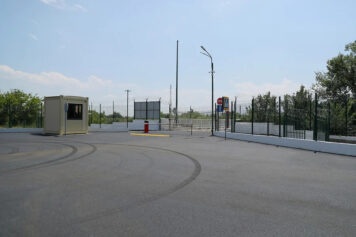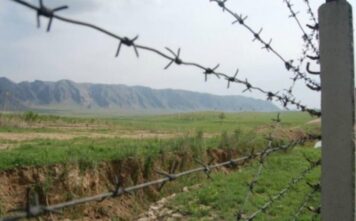Radical failures in Armenia’s foreign policy: Turkey’s and Azerbaijan’s goals and the geopolitical situation
31.05
2025
Part One
Radical failures in Armenia’s foreign policy
Amidst the current internal chaos, many seek to interpret the truth in their own way—not by accepting facts but by fitting them into their preconceived notions. Numerous domestic actors, whether willingly or unwillingly, feed into the machinery of government propaganda. The reality, however, is as follows: Pashinyan embodies slander, provocation, disinformation and falsehood, and it’s not worth competing with him in this matter. Sooner or later, Pashinyan’s political legacy will be associated with insults, dishonor, and contempt.
Elections are ahead, and this year is a pre-election year; therefore, those from the ruling Civil Contract party, seething with frustration because of previously unfulfilled dreams, now see the current period as an ideal opportunity to show it off, in order to be included in Nikol’s list as easily as possible, because all of them are well aware that their behavior in post-Nikol’s Armenia will at least be subject to legal accountability.
It’s necessary to ignore the vulgar language of a few reckless Civil Contract MPs and not turn such incidents into media or social media events—changing the media agenda and not taking the bait. Pashinyan is ready to betray any ally, and it should not be surprising if he sacrifices a few of his own team members under the pretext of fighting corruption, which has already become an absurd slogan.
Meanwhile, significant events are unfolding with regard to foreign policy and security: Azerbaijan and Turkey, observing Armenia’s stance, continue to push new preconditions that further weaken Yerevan’s diplomatic position. Unfortunately, Yerevan has long been reduced from an active player to a tool in the hands of states pursuing their interests in the South Caucasus.
It is true that the visits of high-ranking officials of Iran and Russia can be considered a sign that these two strategic partners realize the consequences of the Turkish-Azerbaijani horizontal threat on the region. However, Tehran and Moscow maintain their own interests in the region, taking advantage of the gaps in Armenia’s foreign policy, and these can be characterized in terms ranging from unpredictability to distrust.
What were the fundamental failures?
The security of Armenia and Artsakh was separated, contradicting the previous unified doctrine.
Armenia abandoned its role as the guarantor of Artsakh’s security, leaving Artsakh alone against Azerbaijan.
Consequences: Artsakh’s depopulation, thousands of casualties, people in captivity, and a destroyed civilization.
Relations with Russia: From unpredictability to distrust
Armenian authorities have repeatedly vacillated, declaring strategic partnership but practically neglecting cooperation mechanisms.
The negative rhetoric voiced at various levels against the Russian 102nd military base in Armenia or the CSTO undermined the atmosphere of trust.
Russia began acting unilaterally, disregarding Armenia’s interests.
Consequences: Russia withdrew peacekeeping forces from Artsakh, adapting to Azerbaijan’s and Turkey’s military-political weight, and a demand for Russian control emerged in the Syunik issue.
Iran-Armenia relations: A missed window
Iran has repeatedly warned it would not accept the concept of the “Zangezur corridor,” but Armenian authorities never articulated this stance internationally.
There was potential to build a deeper strategic and energy alliance with Tehran, including in the context of the North-South Transport Corridor.
Consequences: Iran perceives Armenia as an unreliable partner, lacking a clear state strategic approach.
Relations with the West: Exaggerated hopes and populist expectations
Pashinyan directed his vector toward the EU and the U.S., hoping to receive unconditional support from there, but no legal or military guarantees were obtained.
The EU’s civilian monitoring mission does not de facto affect the security of the Armenian borders, but has turned into a passive observer.
The West is not interested in directly guaranteeing Armenia’s security without geopolitical compromises.
Consequences: Armenia remains without a solid military security umbrella, while Western partners use its territory as a monitoring platform without responsibility.
Absent partnership strategy with Georgia
Armenia-Georgia relations have not evolved into a substantive alliance despite regional vulnerabilities.
Alternative road projects in Lars, including the Black Sea transportation options, have not been used.
International lobbying through Georgia has been entirely neglected.
Consequences: Armenia plays a secondary role in regional economic and transport projects, without safeguarding its interests.
Such substantial errors in foreign policy can be fatal for a small state, especially as regional rivals, perceived allies, and hostile countries take advantage of these vulnerabilities.





